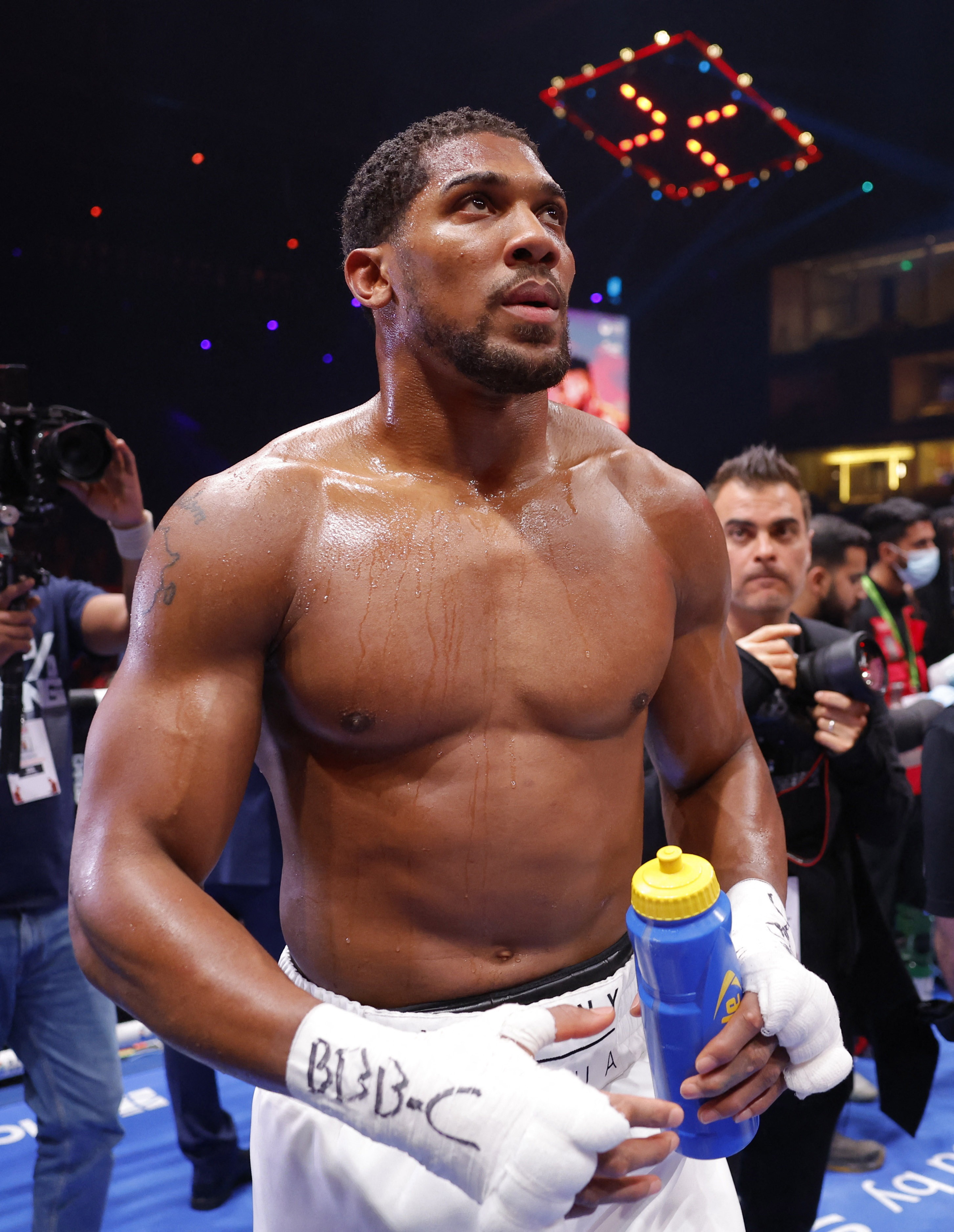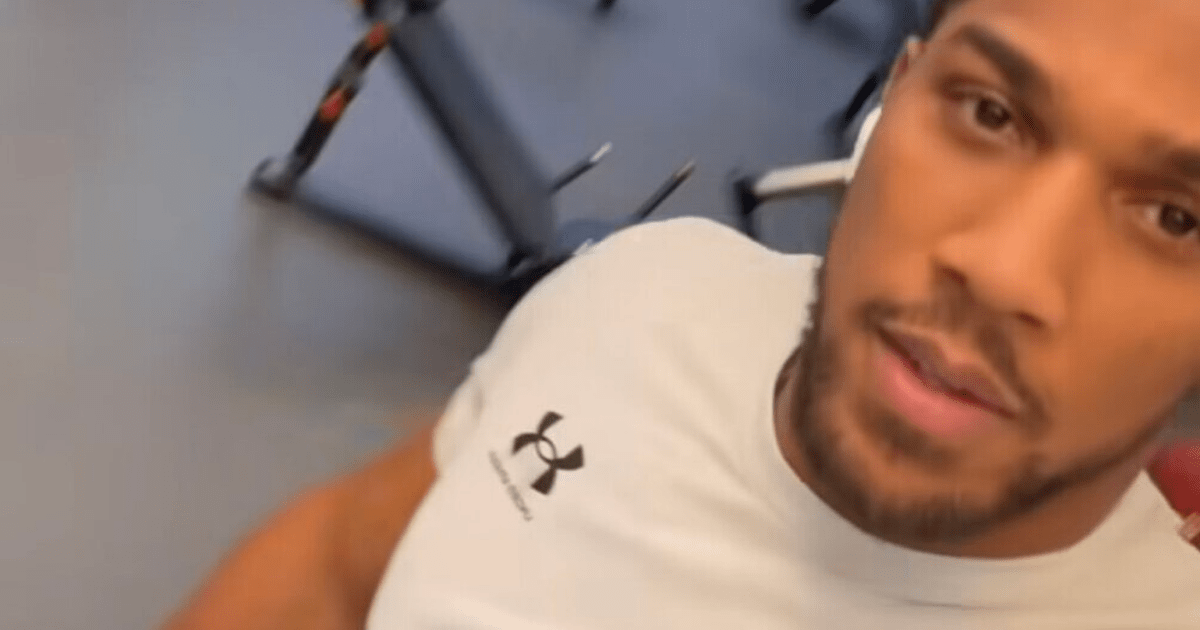AJ Wastes No Time
Anthony Joshua is back in training just two days after delivering a brutal knockout blow to Francis Ngannou.
AJ sent the MMA superstar to the canvas three times in just two rounds, with a final right hand ending the fight in spectacular fashion.
Anthony Joshua is already back in training just two days after knocking out Francis Ngannou
Planning His Next Move
With Tyson Fury set to unify all four heavyweight belts against Oleksandr Usyk on May 18, Joshua is eyeing a summer return.
However, Fury and Usyk are likely to have a rematch, potentially delaying Joshua's shot at the title. In the meantime, Joshua is considering a bout with interim champion Filip Hrgovic.

Multiple Options on the Table
Joshua had originally planned to face Deontay Wilder, but after Wilder's recent loss, Joshua is now looking at potential matchups with Wilder, Zhilei Zhang, or Joseph Parker for his next fight.
Frequently Asked Questions
How long does it typically take to become a professional boxer?
The time it takes to become a professional boxer can vary widely. The length of time to become a professional can be affected by the person’s initial skill level, his or her ability to adapt and their training. It can take a number of years to develop the necessary skills and gain enough amateur experience. Some people may develop more quickly while others will take more time.
Anyone can learn how to box professionally.
Not everyone can compete at the professional level. Professional boxing demands a unique combination of talent as well as physical abilities, mental strength and dedication. Prospective boxers also need to be willing to accept the inherent risks associated with the sport. A thorough assessment by a coach can determine if a person has the potential to make a career out of boxing.
How important is mental strength in professional boxing?
Mental toughness in professional boxing is as crucial as physical conditioning. The sport requires mental toughness, resilience, and the ability of handling pressure. Mental preparation includes visualization, stress management, and developing a mindset that is ready to face the challenges in the ring. A boxer without mental toughness may find it difficult to perform well under the extreme conditions of a professional competition.
What are some of the most important components in a boxer’s training regime?
A boxer’s training program is typically composed of a few key components. Technical skill development, strength and conditioning exercises, sparring and mental preparation are all part of a boxer’s training routine. Tactical drills allow for the development of fight strategies while focusing on technique. Sparring allows for practical combat experience. Conditioning exercises boost athleticism. Mental training helps build confidence, focus, resilience and resilience.
What is required to begin training in professional boxing?
Before beginning to train for professional boxing one must be committed to physical fitness and discipline. They also need to have an eagerness to learn. In the beginning, you will need to master basic fundamentals such as stance, footwork and punches. It is important to join a reputable, professional boxing gym. The trainers should be experienced professionals who know the intricacies of competition. Beginner boxers are usually subjected to a strict regimen of technique drills, conditioning and sparring before they consider competing.
What should someone look for in a boxing coach or trainer?
When seeking a boxing coach or trainer, one should look for experience, a successful track record with other boxers, compatibility in coaching style, and a deep understanding of the sport’s technical and strategic aspects. A good boxing trainer will also focus on safety, personal growth, and conditioning. It is also important to find a boxing coach who can motivate you and communicate effectively.
What role do managers and promoters have in the professional career of a boxer?
Managers and promoters play pivotal roles in a boxer’s professional career. Managers are in charge of guiding a boxer’s professional career, negotiating contracts and managing the boxer’s business affairs. They also provide support in selecting the right fights and looking after the boxer’s interests. Promoters are more focused on marketing, event organization and attracting sponsorship attention. They also focus on enhancing a boxer’s profile.
Statistics
- Professional boxers typically train 4 to 6 hours per day, 5 to 6 days a week, depending on their fight schedule.
- Nutrition experts emphasize that over 70% of a boxer’s diet should focus on carbohydrates and proteins for energy and recovery.
- The average age for boxers to turn professional is between 18 to 25 years, though many continue to compete well into their 30s and beyond.
- On average, a professional boxer spars between 100 to 200 rounds in preparation for a major fight.
- Less than 10% of professional boxers are undefeated throughout their career, highlighting the sport’s competitive nature.
- Research shows that a boxer’s reaction time is typically under 0.25 seconds, honed through repetitive drills and sparring.
- Cardiovascular fitness is critical, with a focus on high intensity interval training, comprising up to 40% of a boxer’s conditioning program.
External Links
boxingnewsonline.net
wbcboxing.com
ibhof.com
precisionstriking.com
boxingnews24.com
boxingforum24.com
titleboxing.com
How To
How to Recover After Boxing Training
It is important to recover quickly after intensive boxing training. This will improve your performance and progress. After workouts, implement a cool down routine that includes low intensity cardio and stretching to reduce muscle pain. Prioritize nutrition immediately following training; a mix of protein and carbohydrates can aid muscle recovery. It is important to replenish the fluids you lost while exercising. Adequate sleep is essential for recovery; aim for 7-9 hours per night. Regular use of massage and foam rollers can also reduce stiffness and promote muscle recovery.

